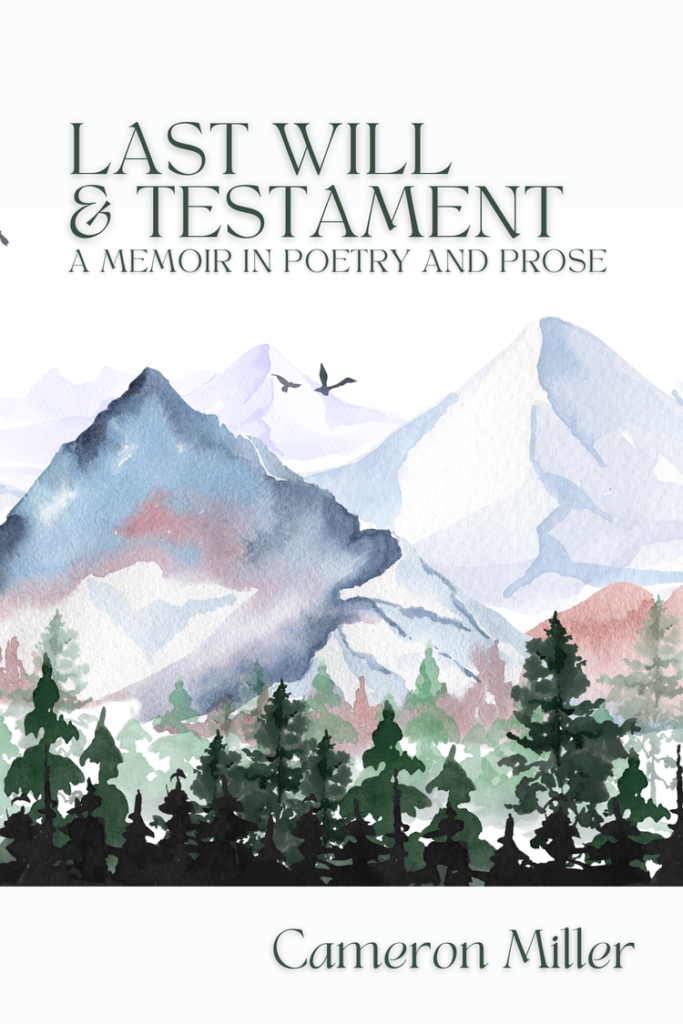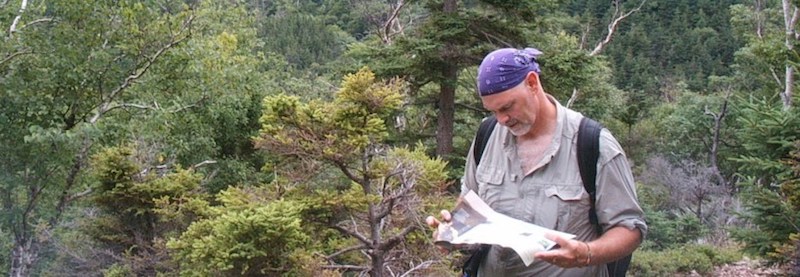
This isn’t just about a book, it’s also about someone I think is extraordinary: the Reverend R Cameron Miller. I know Cam, but we haven’t met in person or even shared a phone conversation in forty years. We first met in 1976 when I was the alcoholism counselor for Saratoga County at the foothills of the Adirondacks and he was a grinning, beaming, larger than life, boom-laughing, sneakily philosophical, backside banging basketball buddy, somewhat disorderly orderly on the locked psychiatric ward. New to Saratoga Springs that year, I claimed Cam as a kindred spirit, which as the youngest of five brothers was a routine I followed upon meeting big, smart, funny, kind guys. We kept in touch through my visits to Cambridge Massachusetts as he moved through all of the stages of becoming an priest via Episcopal Divinity School there. And then as Connie Eble and not Forrest Gump first opined, shit happened. He got posted to Ohio if my memory serves correctly; if you need proof that God has a sense of humor then consider this large Hoosier planted in a church smack in the middle of The Ohio State University campus.
I moved to New York City pursuing a life in the theater, which turned out to be a half-life in the theater with the other half associated with marrying and then raising a family Or at least helping somebody else raise the family, my wife of over 4 decades, Marjorie. There were a few letters and attempts to reconnect with Cam, but at best I think we retained only an awareness that this other person might be at a particular spot in the universe. Thus as I write this tribute to the man and his recently published book, we haven’t seen each other in person since 1979. Neither of us has met our respective wives or children and certainly not the grandchildren with whom both of us are now blessed. We are only aware at the perimeter of all that has occurred in each other’s life.
But I would argue (as an inveterate arguer as Cam could attest) that we have remained intimates echoing the ancient roots of that word (and if you read his latest book as you should you’ll find that Cam is a lover of the meanings of words). Intimates is from the Latin intimātus, past participle of intimāre, < intimus inmost, deepest, profound or close in friendship. But my Latin reminds me that even this word has a root — ‘intus’ — meaning within. Those in our life who have been significant friends remain within us even if association disappears for a time.
And it might have remained that way just good memories swirling amidst the dents we placed in each other’s spirits, if not for the pandemic, which created many ruptures but also burgeoned many innovations in relationships. For example, our theater company, Knowledge Workings, produced GRUDGES ,co-authored by Joe Queenan and myself, one of the first plays offered on Zoom in May 2020. We say only half-jokingly that our actors in that play and several subsequent productions during the course of Covid lockdowns were among the highest paid stage actors in the United States because they were pretty much the only stage actors getting paid in the United States then. What surprised and delighted me was the connections made through those videos with people all around the US and even in Europe with whom we had only sparse contact in the previous years. The disaster brought us together with some people and that was a very good thing. Being a pioneer in this mode of communication, however, also carried the discovery of some unpleasant realities; e.g.,. staging comedies in a medium where the actors and the audience can’t hear anybody laughing turns out to be weird and even depressing. We were both early adopters and after December 2020 early droppers of Zoom productions.
But, I think that Cam Miller who currently is part-time pastor, teacher, and preacher at Trinity Episcopal Church in Geneva New York was conducting services and offering sermons online even earlier than our plays appeared during that tumultuous Spring. Viewers had their choice of watching the video or reading a transcript of the service. My speed reading, which some might incorrectly term skimming, and my inveterate impatience makes checking out the text accompanying such videos much more appealing. In this case, those words written by Cam nourished, inspired, and comforted me. And I’m a Roman Catholic (as my mother in my childhood insisted I say, suspicious that some Orthodox sect might lure me into its Byzantine rites) but as Cam notes we need a globalization of spirituality.
Now some of those sermons along with poems and a great deal of other writings by this eloquent and perceptive observer of our world (and also maybe of ‘kingdom come’) are collected in his new book: Last Will & Testament A Memoir In Poetry And Prose published by Unsolicited Press. Cam’s output here also includes essays first published in The Finger Lake Times where he is a regular columnist.
- Suspicion on the part of the reader now would be appropriate. Having already established my bona fides as a longtime friend of the author, this review and recommendation might be seen to be the product of bias, perhaps even conspiracy since everything seems to be tied to conspiracy these days. Fair enough, but I would ask a prospective buyer of the book first to consider these examples of marvelous phrases conjured by Cam Miller:
- Describing his Dad doing something out of character as “A whim by a whimless man”
Articulating the experience of Jesus being tempted during his 40 days in the wilderness as one who at that moment was “Led by his deprivation” That struck home. - Describing St. Paul: “who organized early Christian communities and wrote letters we still have today, was well educated by first century standards, but spectacularly ignorant by hours. Why are we stuck with his ideas, especially when he didn’t know Jesus either?”
- Explaining our failure to comprehend the enormity of the divine in this passage from one of his poems: “God, our little God, is the creator of all those billions of billions of galaxies, each with tens of billions of suns. God, our little God, is that God. And we somehow have gotten the idea that we can reduce that God to a manageable size so that we can know it, and understand it, and follow its every command and digest it like some cookie that delights us.”
What makes me praise a book is when there are passages that I wish I had written or insights that I need to have. Last Will & Testament satisfies stupendously both of those criteria. Serendipitously, I started reading the book on a train ride back from seeing the most recent Broadway production of Our Town in which one of our most brilliant writers, Thornton Wilder, makes us see what we tend to neglect: the beauty and mystery of life. Many of us have marveled whether in high school as required reading or later in some powerful performance when we encountered Emily’s soliloquy after she has died that contains this line:
“Oh, earth, you’re too wonderful for anybody to realize you.”
The first poem in this volume entitled The Dance Between Grief And Gratitude resonated similarly for me. It opens, “When grief begins it is anything but ordinary. It is a trauma landing with the force of a horse sitting down on its rider.” Later in the poem, Cam like Wilder asks us to consider what it would be like to “die and then walk around living?”
Well, if we did that, then we would all write poetry like Mary Oliver. We would walk around savoring every small thing we had rarely noticed when we are alive and we just touch it or kiss it, or hold it. A single blade of grass would be so marvelous would make us cry. A snowflake would take our breath away. A toad hopping in the grass, or worm writhing in the soil, or the diamonds the sun scatters on the morning waves would make us swoon. We would walk around savoring every small, delicious molecule of life just dripping with gratitude.
I came away from this collection of essays and poems dripping with gratitude because again and again Cam Miller invited and guided me to savor those small, delicious molecules of life. He got within me again as he did in those days in Cambridge when he would tell me the wonders of what he was learning in seminary. In this book, he made me think of realms of which I may have been thoughtless. He thrilled me with ideas like “the God who eats black holes for a snack.” And perhaps most significantly for me he reminded me of “the humility we lost in modernity is a lens we need to find and wear for what we wish to see clearly.” Humbly, because I know not everyone shares my tastes and not everyone has the time, I urge you to read Last Will & Testament A Memoir In Poetry And Prose
